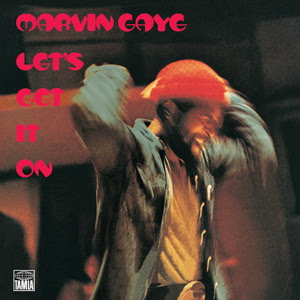I was inspired by a podcast called The 500 hosted by Los Angeles-based comedian Josh Adam Meyers. His goal, and mine, is to explore Rolling Stone Magazine's 2012 edition of The 500 Greatest Albums of All Time.
Album: #164
Album Title: The Very Best of Linda Ronstadt
Artist: Linda Ronstadt
Genre: Country, Rock, Soft Rock, Pop
Recorded: Various Studios (1967-1995)
Released: September, 2002
My age at release: 37 (My guest blogger, Ava, was not born)
How familiar was I with it before this week: Quite (New to Ava)
Is it on the 2020 list? No, but her 1974 record, Heart Like A Wheel, is
Song I am putting on my Spotify Playlist: You’re No Good
For the fifth straight year, I have invited anyone in my Grade 7 class to pick an upcoming record and write about. I was delighted when Ava accepted the challenge. Here is her post on The Very Best Of Linda Ronstadt, by Linda Ronstadt.
=============================================================
Hi, my name is Ava and I am a Grade 7 student in Mr. Hodgkinson’s class. Earlier this year he asked if any of us would be interested in being a guest blogger for one of the records on Rolling Stone Magazine's The 500 Greatest Albums of All Time and I volunteered.
Let me tell you about myself. I love performing and I am definitely an extrovert. I like singing and acting, but my passion is dancing. I have been taking dance classes since I was three. One of my favourite musical artists is Justin Beiber. I became a fan when my aunt played it for me and she is hoping to take me to see him in concert. She even gave me her concert sweatshirt from this 2009 tour. (See Below)
The album I picked from the list Mr. Hodgkinson showed me is The Very Best Of Linda Ronstadt, by Linda Ronstadt. At first, I wasn’t sure which album to pick, but I went home and shared it with my dad. We listened to a few tracks from some of the other records, but I picked Ms. Ronstadt because I wanted to learn about a female artist and it stuck out from the other records we listened to, including Imperial Bedroom by Elvis Costello and Live At Leeds by The Who. They were okay, but Ms. Ronstadt stood out more. |
| Linda Ronstadt in the 1970s. |
I did some research and this is what I learned.
Linda Ronstadt is an American singer who was born July 15, 1946. Linda’s family life was filled with music and tradition, which influenced the stylistic and musical choices she later made in her career. She has performed and recorded in many genres including country, rock, opera, and Latin music. She was awarded the Grammy Lifetime Achievement Award by the Recording Academy in 2016. She was inducted into the Rock & Roll Hall of Fame in April, 2014..jpg) |
| Winning one of her 11 Grammy Awards. |
Despite not being married, she has two children. In 1990, she adopted a daughter, Mary and in 1994, she adopted a baby boy she named Carlos.
The song I picked for Mr, Hodgkinson’s playlist is You’re No Good. I like it because it is catchy and fun to sing along with. It wasn’t written by Ms. Ronstadt but by Clint Ballard Jr. He was an American songwriter who had two number one hits. One was this version of his song by Linda Ronstadt and the other was in 1965 – Game of Love performed by Wayne Fontana and The Mindbenders.Linda reduced her performance schedule after 2000 when she felt her singing voice deteriorating. She released her final solo album in 2004 and her final collaborative album in 2006, and performed her final live concert in 2009. She announced her retirement in 2011 and revealed shortly afterward that she is no longer able to sing because, sadly, she was diagnosed with Parkinson’s disease – a progressive disorder that primarily affects the brain's movement-controlling areas. Since that time Linda has continued to make public appearances, going on a number of public speaking tours raising awareness about her illness.When I read about her Parkinson’s diagnosis I felt a lot of empathy for her. She is a singer and I am a dancer and I can’t imagine not being able to dance anymore. I know that she is being brave and fighting through this, but it must be very hard for her.
Here are five fun facts I learned about Ms. Ronstadt.
- She was the first female artist to have four consecutive albums go platinum.
- She has been nominated for 27 Grammy Awards and has won 11.
- She has also been awarded a Grammy Lifetime Achievement Award.
- She has even won an Emmy Award for her 1989 performance in Canciones De Mi Padre (Songs of my Father) on the PBS special Great Performances.
- Her grandfather, Lloyd Groff Copeman, was an inventor. Among his inventions, he designed early versions of the electric toaster, stove refrigerator and even the microwave oven. He also invented the flexible rubber ice cube tray which earned him millions of dollars. We have one of those in our fridge, so I guess we gave the Ronstadt family some money,
Thanks for reading.
That's all for today BYE! -Ava
(credits to Wikipedia for the blog and CNN10 for the facts)








.jpg)

.jpg)













.jpg)









